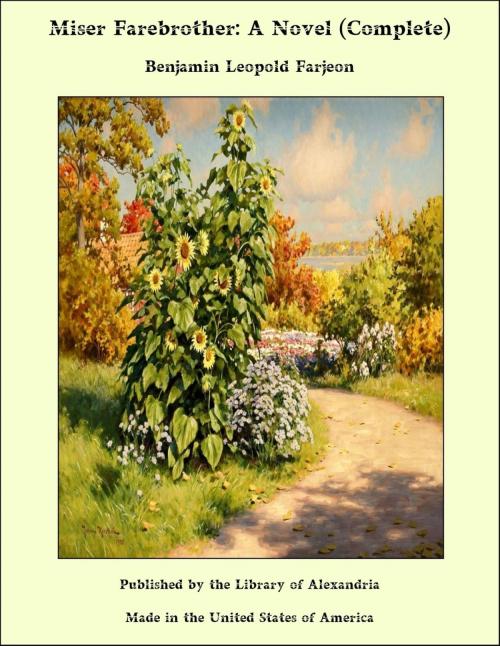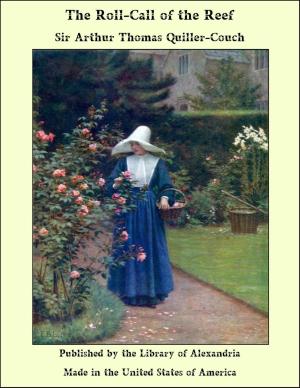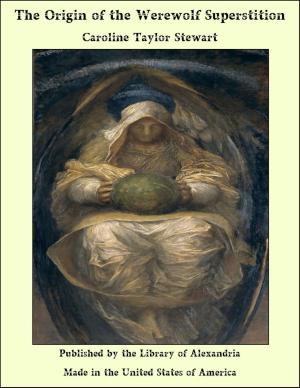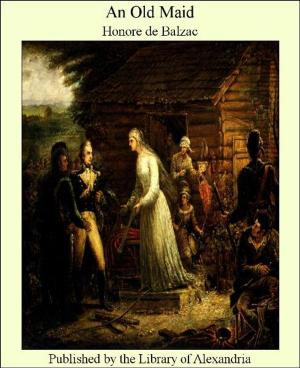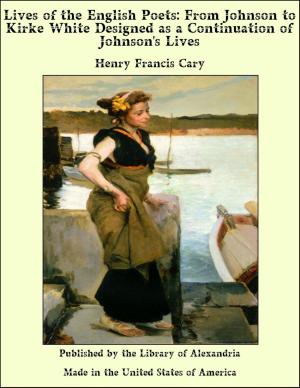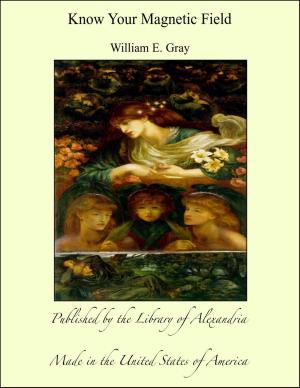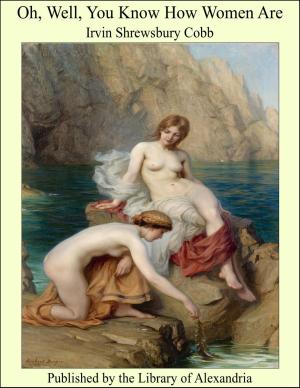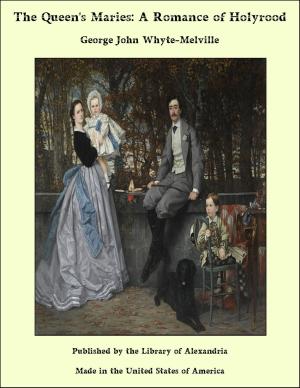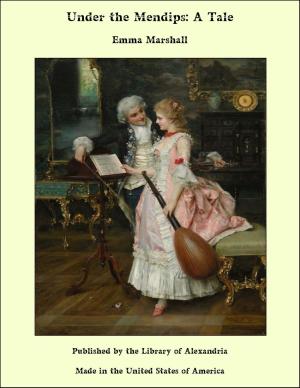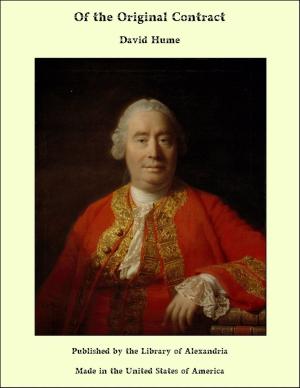Miser Farebrother: A Novel (Complete)
Nonfiction, Religion & Spirituality, New Age, History, Fiction & Literature| Author: | Benjamin Leopold Farjeon | ISBN: | 9781465528162 |
| Publisher: | Library of Alexandria | Publication: | March 8, 2015 |
| Imprint: | Language: | English |
| Author: | Benjamin Leopold Farjeon |
| ISBN: | 9781465528162 |
| Publisher: | Library of Alexandria |
| Publication: | March 8, 2015 |
| Imprint: | |
| Language: | English |
In Dropmore Beeches, near Beddington, county of Surrey, stands a red brick mansion, in the Gothic style, known as Parksides. It is situated on the outskirts of an estate of forty acres, comprised of a few acres of cover, and, for the rest, of shrubberies, meadow-land, and a wilderness wood, upon the arrangement of which great care had been bestowed and a vast amount of money expended. This was in the old days, when the house had been occupied by a family of good standing, the heirs of which had resided in it for many generations. Pride was taken in it then, and it was deservedly renowned for its beauty. The country people round about quoted Parksides as a possession which reflected honour upon themselves, and the vicarious distinction was accounted of high value. They had good reasons for being proud of it, and of its masters and mistresses, who were to the fore not only in the county but in the metropolis. The gentlemen fought for King and country, and administered the laws; the ladies dispensed charities and set the fashions; they attended Court, hunted, travelled, and held their heads high, as was their due. But other times, other men. The family that had owned Parksides for centuries slipped out of the ranks—for which they had none but themselves to blame. A strain of foreign blood was introduced by marriage, and the heir born of that union inherited the vices of his mother's family. He ran his course merrily; and after him a spendthrift heir, and after him another, reaped what had been bred and zealously cultivated in the bone. They played the part of absentees, and plunged into the fashionable dissipations of the city—raked, and made matches on the race-courses, rattled the dice-box from night till morning, were always ready for any mad prank, drank deeply, and borrowed at exorbitant interest—until they had thoroughly succeeded in squandering their fortune. It was too late, then, for repentance: Parksides was lost to them and theirs for ever. There had been long and complicated law proceedings in connection with the estate, and at the period of the opening of this story it was supposed to be in Chancery—which troubled itself not at all in the matter—and to have no rightful or legal owner. Nevertheless, it was occupied by a man who had earned the name of Miser Farebrother, who paid rent to no one, and was not called upon to do so. It was really doubtful whether any person had authority to demand it; and if a claimant had come forward, his right would have been stubbornly contested by Miser Farebrother, who had papers in his fire proof safe proving, in some entangled way, that he had advanced money upon the estate which entitled him to possession. The lawyers, for a great number of years, had gathered rich harvests out of Parksides, and, after picking its bones clean and involving it in legal complications which the entire learned profession could not have unravelled, had turned their backs upon it and flown to more profitable game. Its fate, long before it fell into the hands of Miser Farebrother, may be described in one word—decay. The wilderness wood, the wild charms of which had been preserved with much care and skill, was so encumbered with stunted wood growth and overrun with giant weeds that it resembled a miniature Forest of Despair; the shrubberies were wrecks; the meadow-land was thick with tufts of rank grass; and the only part of the estate which had thriven was the cover, in which the rabbits literally swarmed, spreading destruction all around. Not a shilling did Miser Farebrother expend upon the grounds—a proof that he did not regard his rights as absolutely incontestable. He had a keen eye for the main chance, and money could have been laid out on the land with profit, both in the present and the future; but he was not the man to waste the smallest coin upon a doubtful venture. "Safe and sure" had been his motto all through his life, and from a worldly point of view he had made it pay.
In Dropmore Beeches, near Beddington, county of Surrey, stands a red brick mansion, in the Gothic style, known as Parksides. It is situated on the outskirts of an estate of forty acres, comprised of a few acres of cover, and, for the rest, of shrubberies, meadow-land, and a wilderness wood, upon the arrangement of which great care had been bestowed and a vast amount of money expended. This was in the old days, when the house had been occupied by a family of good standing, the heirs of which had resided in it for many generations. Pride was taken in it then, and it was deservedly renowned for its beauty. The country people round about quoted Parksides as a possession which reflected honour upon themselves, and the vicarious distinction was accounted of high value. They had good reasons for being proud of it, and of its masters and mistresses, who were to the fore not only in the county but in the metropolis. The gentlemen fought for King and country, and administered the laws; the ladies dispensed charities and set the fashions; they attended Court, hunted, travelled, and held their heads high, as was their due. But other times, other men. The family that had owned Parksides for centuries slipped out of the ranks—for which they had none but themselves to blame. A strain of foreign blood was introduced by marriage, and the heir born of that union inherited the vices of his mother's family. He ran his course merrily; and after him a spendthrift heir, and after him another, reaped what had been bred and zealously cultivated in the bone. They played the part of absentees, and plunged into the fashionable dissipations of the city—raked, and made matches on the race-courses, rattled the dice-box from night till morning, were always ready for any mad prank, drank deeply, and borrowed at exorbitant interest—until they had thoroughly succeeded in squandering their fortune. It was too late, then, for repentance: Parksides was lost to them and theirs for ever. There had been long and complicated law proceedings in connection with the estate, and at the period of the opening of this story it was supposed to be in Chancery—which troubled itself not at all in the matter—and to have no rightful or legal owner. Nevertheless, it was occupied by a man who had earned the name of Miser Farebrother, who paid rent to no one, and was not called upon to do so. It was really doubtful whether any person had authority to demand it; and if a claimant had come forward, his right would have been stubbornly contested by Miser Farebrother, who had papers in his fire proof safe proving, in some entangled way, that he had advanced money upon the estate which entitled him to possession. The lawyers, for a great number of years, had gathered rich harvests out of Parksides, and, after picking its bones clean and involving it in legal complications which the entire learned profession could not have unravelled, had turned their backs upon it and flown to more profitable game. Its fate, long before it fell into the hands of Miser Farebrother, may be described in one word—decay. The wilderness wood, the wild charms of which had been preserved with much care and skill, was so encumbered with stunted wood growth and overrun with giant weeds that it resembled a miniature Forest of Despair; the shrubberies were wrecks; the meadow-land was thick with tufts of rank grass; and the only part of the estate which had thriven was the cover, in which the rabbits literally swarmed, spreading destruction all around. Not a shilling did Miser Farebrother expend upon the grounds—a proof that he did not regard his rights as absolutely incontestable. He had a keen eye for the main chance, and money could have been laid out on the land with profit, both in the present and the future; but he was not the man to waste the smallest coin upon a doubtful venture. "Safe and sure" had been his motto all through his life, and from a worldly point of view he had made it pay.
